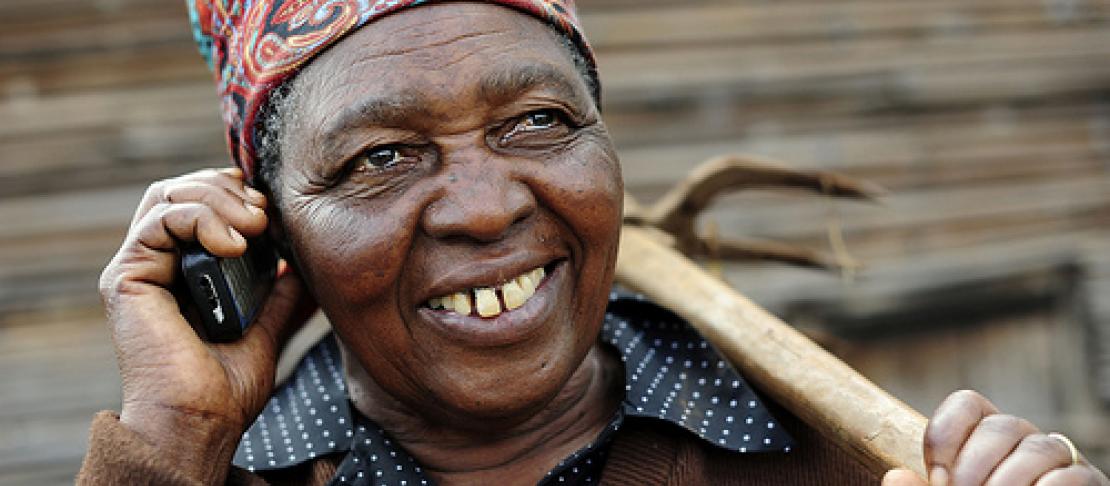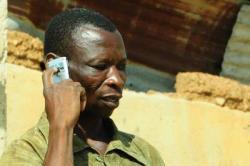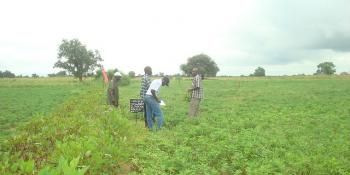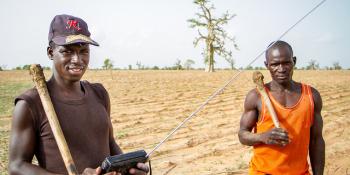Farmers dial in for climate adaptation

Information and Communication Technologies (ICTs) have the potential to help monitor climate change as well as help farmers adapt and mitigate to its effects. This important link was discussed at the International Telecommunications Union (ITU) symposium on ICTs, Environment and Climate Change held in late July in Accra, Ghana.
In Africa, where half the continent’s population uses a mobile phone, people now have unprecedented access to information via their handsets. The Guardian recently reported on the multiple ways mobile phones have catalysed innovation, including in the farming sector. For example, farmers from isolated areas can access weather information via text messages (SMS) or phone calls, to prepare for upcoming drought spells, heavy rain or floods.
The CGIAR Climate program has just published a report on climate information services in West Africa. The authors found “the timely provision of climate information may help vulnerable societies and individuals to prepare for these extreme events, thus mitigating the costs associated with bad years and allowing them to better capture the benefits associated with favourable climatic conditions.”
Read more about our work on adaptation through managing climate risk as well as our new working paper The State of Climate Information Services for Agriculture and Food Security in East African Countries. The working paper assesses current climate services and makes recommendations on the sorts of measures that might be taken in order to better satisfy climate information needs of the agriculture and food security sector in East Africa.
Mobile phones are being used by local farmers

As more and more information becomes available via smartphones, farmers who can’t access the more expensive handsets risk being left behind. As a solution, the microfinance organisation Grameen Foundation has started to lease smart phones to local farmers in the Ugandan countryside, enabling them to receive weather information, planting advice, disease diagnostics, markets prices and more. The participants, called community knowledge workers (CKWs), share the information with their neighbours, which extends the group of people that are reached by the project. The farmers involved in the projects also help Grameen by gathering information form the farmers they register and feed it back to the organisation, which passes it on to agricultural organisations and food programmes.
Except for receiving information via text messages the organisation has also started sending images. This way the farmers can identify and diagnose diseases on plants and crops via visual means. The next step is educational videos to be played on the smart phones during village meetings. The challenges are still unreliable network coverage in remote areas and keeping the smart phones charged. Although the mobile industry is increasing in Africa, there is still a digital divide that needs to be bridged in order to help developing countries plan for adaptation and to enable a rapid and fully informed response to extreme conditions, states the report Using ICTs to Tackle Climate Change by the International Telecommunications Union (ITU) and the Global e-Sustainability Initiative.


